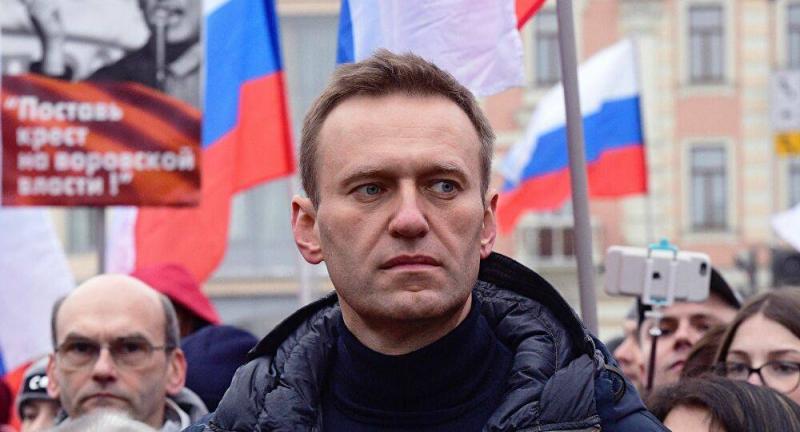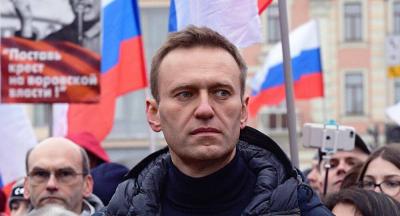On Friday, the British government imposed sanctions on seven Russians suspected of being involved in the poisoning of opposition leader Alexei Navalny a year ago on a flight in Siberia. The seven, who are reported to belong to Russian security agencies, face travel bans and asset freezes, as part of measures "taken alongside our American allies," according to a statement from the British Foreign Office.
In Washington, the U.S. Treasury Department announced in a separate statement that nine senior officials and scientific informants in Russia were targeted in the third round of U.S. sanctions. The statement explained that the U.S. State Department had selected "scientific informants for the Russian Ministry of Defense involved in activities to develop Russia's chemical capabilities."
The U.S. sanctions were also imposed in light of disagreements surrounding the "Nord Stream 2" project for transporting Russian gas to Europe. U.S. Secretary of State Antony Blinken wrote, "With today's actions, the administration has imposed sanctions on seven individuals and identified 16 Russian vessels as prohibited property... related to Nord Stream 2."
The U.S. and German governments announced on July 21 an agreement to resolve their disputes concerning the gas transfer project. The project may proceed, but sanctions could still be imposed on Russia if Moscow uses it in the context of "aggressive actions against Ukraine."
The United States expressed regret that "Nord Stream" passes through the Baltic Sea and not Ukraine, threatening to deprive Kyiv of revenue and leverage over Moscow. The Russian Foreign Ministry condemned the sanctions as "unilateral and unlawful."
Spokeswoman Maria Zakharova stated via Telegram that "Russia has repeatedly called on (the United Kingdom) and its partners to substantiate accusations with evidence. However, the UK and its partners continue to ignore these calls."
This is the second round of British sanctions related to the Alexei Navalny case. London had previously imposed sanctions in October 2020 on six Russian officials, including the head of the Federal Security Service, Alexander Bortnikov, and a member of the presidential team, Sergey Kiriyenko. However, the British statement indicated that the persons sanctioned this time are "directly responsible for preparing the attack on Navalny in Tomsk on August 20, 2020, or for carrying it out."
Among those targeted are three individuals alleged to belong to Russian security agencies: Alexei Aleksandrov, Vladimir Panayev, and Ivan Vladimirovich Osipov. The sanctions also affected four senior officials in the Federal Security Service.
Navalny (45) is serving a two-and-a-half-year prison sentence for a fraud case dating back to 2014, which he claims is politically motivated. He returned to Russia in January after recovering in Germany from an alleged poisoning with the nerve agent Novichok, which he accuses the Kremlin of committing. He was arrested by police upon his arrival at Moscow airport.
British Foreign Secretary Dominic Raab stated that the aim of the new sanctions is "to send a clear message that any use of chemical weapons by the Russian state violates international law and that there must be a transparent criminal investigation."
In a joint statement, London and Washington called "on Russia to fully comply with the Chemical Weapons Convention, as well as its obligations to declare and dismantle its chemical weapons program." The allies expressed "regret over the lack of a Russian investigation and the absence of credible explanations regarding the use of a chemical weapon on Russian territory."




